

|
|
Vulgaria
R2 - United Kingdom - Third Window Films Review written by and copyright: Paul Lewis (14th April 2013). |
|
The Film
 Vulgaria (Pang Ho-cheung, 2012) 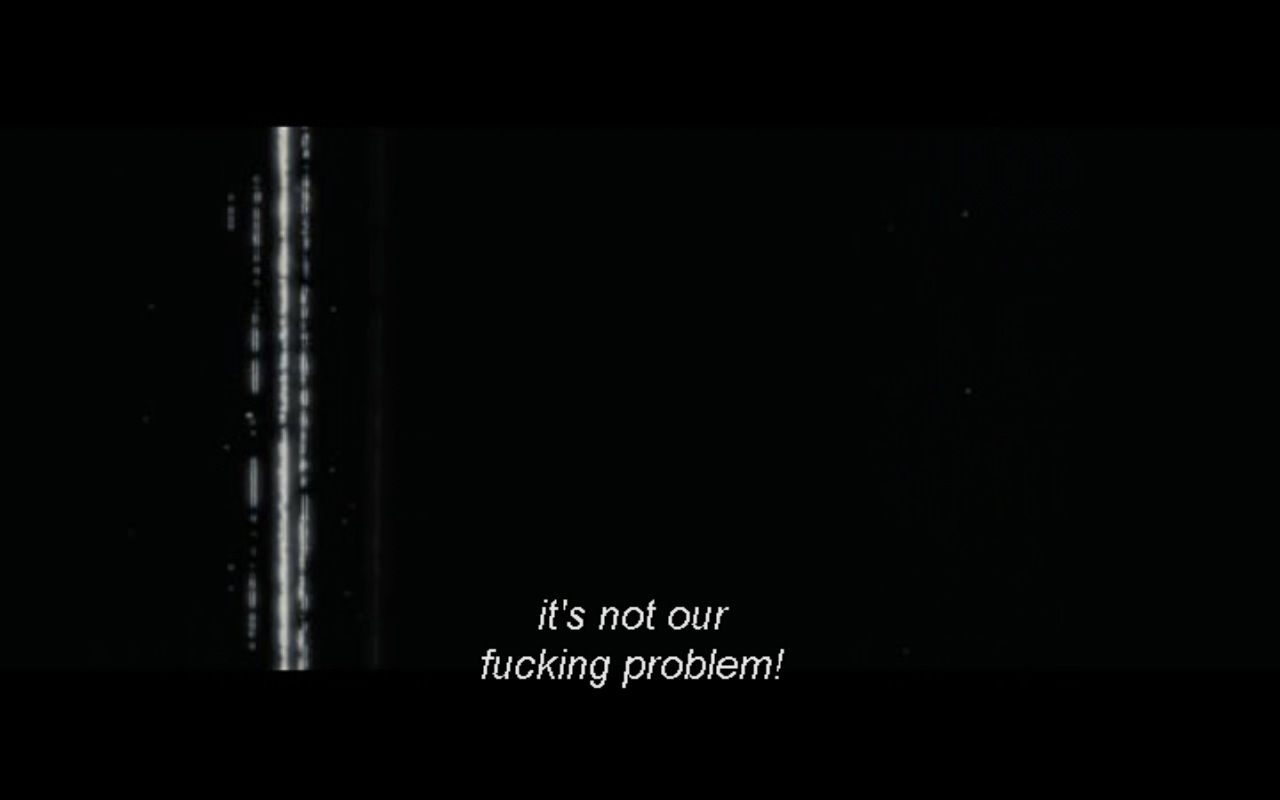 Pang Ho-cheung’s comedy Vulgaria (2012) is the director’s eleventh film. (In the same year as Pang became a filmmaker, his novel Fulltime Killer had been adapted for the screen by Johnnie To in 2001.) Pang’s first feature as director, You Shoot, I Shoot (2001) established his taste for black comedy and his absurd take on life, both of which are evident throughout his films, including Vulgaria. Pang’s first film has been labelled as ‘a declaration of a young, hip independent voice’ that, although ‘it does have some of Hong Kong’s characteristic broad comedy […] You Shoot, I Shoot has more in common with juvenile comedy from the West, with its pot humour and Tarantino-esque indulgence in zany violence’ (Hu, 2012: 212). Likewise, the raunchy Vulgaria has invited comparisons between Pang’s brand of humour and Hollywood’s recent focus on films featuring crude ‘laddish’ humour, such as Todd Phillips’ The Hangover (2009) (for example, see Shannon, 2012: np). Pang Ho-cheung’s comedy Vulgaria (2012) is the director’s eleventh film. (In the same year as Pang became a filmmaker, his novel Fulltime Killer had been adapted for the screen by Johnnie To in 2001.) Pang’s first feature as director, You Shoot, I Shoot (2001) established his taste for black comedy and his absurd take on life, both of which are evident throughout his films, including Vulgaria. Pang’s first film has been labelled as ‘a declaration of a young, hip independent voice’ that, although ‘it does have some of Hong Kong’s characteristic broad comedy […] You Shoot, I Shoot has more in common with juvenile comedy from the West, with its pot humour and Tarantino-esque indulgence in zany violence’ (Hu, 2012: 212). Likewise, the raunchy Vulgaria has invited comparisons between Pang’s brand of humour and Hollywood’s recent focus on films featuring crude ‘laddish’ humour, such as Todd Phillips’ The Hangover (2009) (for example, see Shannon, 2012: np).
You Shoot, I Shoot also established Pang as a filmmaker whose films were interested in the mechanisms of film production. In the picture, Pang depicts Hong Kong as a society experiencing a financial crisis which has impacted on both filmmaking (a profession that, in the film, is populated almost solely by pornographers and gangsters) and the world of hired killers. In this pressured environment, a hitman strikes an allegiance with an assistant director and together they exploit the synergy that is created by the collision of the worlds of filmmaking and murder. Brian Hu says that ‘[i]n a world where everything is a media event and every job requires an audio-visual pitch, it is not enough for the assassin to shoot a video. He must shoot it well: it must be polished and channel Martin Scorsese. You Shoot, I Shoot is particularly perceptive about the fact that in such an environment, the ability to package a job is often more important than doing the job well to begin with’ (op cit.: 212). This is something which can also be seen in Vulgaria, the narrative of which repeatedly references a pitch that is coded within the film as almost a moment of primal trauma for the film’s protagonist, film producer Wai-cheung To (Chapman To): early in the film, To reflects on a situation in which he was required to deliver a presentation to representatives of an insurance company, in the hope of getting them to part-finance a film, only to discover as he talks his way through the script (prepared by his director) that its narrative revolves around the same insurance company backing al-Qaeda in order to avoid payouts to the relatives of plane crash victims. 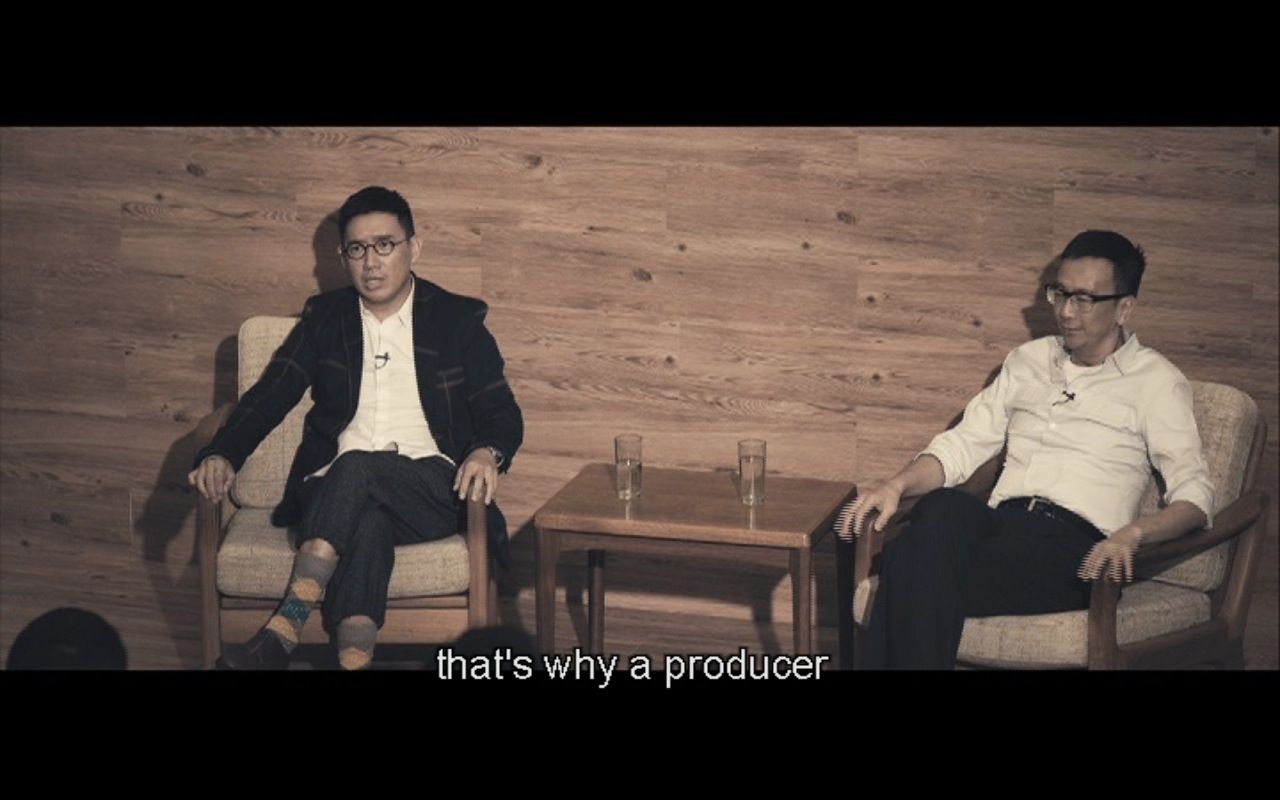 The basic narrative of the film is quite simple: To, whose film production company is going through hard times, is hired by a rural gangster, Tyrannosaurus (Ronald Cheng), to remake an old Category III film, Confessions of a Concubine. However, Tyrannosaurus wants the film to star Yum-Yum Shaw (Yin-Yin Shaw), a former sex symbol who is now in her fifties. To comes up with an idea: using digital technology, he will superimpose Yum-Yum Shaw’s head onto the body of a young actress nicknamed ‘Popping Candy’ (Dada Chan). The basic narrative of the film is quite simple: To, whose film production company is going through hard times, is hired by a rural gangster, Tyrannosaurus (Ronald Cheng), to remake an old Category III film, Confessions of a Concubine. However, Tyrannosaurus wants the film to star Yum-Yum Shaw (Yin-Yin Shaw), a former sex symbol who is now in her fifties. To comes up with an idea: using digital technology, he will superimpose Yum-Yum Shaw’s head onto the body of a young actress nicknamed ‘Popping Candy’ (Dada Chan).
Although the narrative is simple, its presentation is complex. Pang’s film opens in a university lecture hall where To is being interviewed by a lecturer in front of a group of students. As the opening credits end, To is shown seated alone in front of the students. We watch from behind the students, their heads visible in front of us: Pang makes the viewer feel as if s/he is part of the audience in the lecture hall. When the lecturer enters the hall and apologises (‘I didn’t expect you to be so punctual. I thought most film people are supposed to be late’), To turns to the camera and addresses the film’s audience directly, asserting that he is never late, even when going to the cinema: ‘When you’re watching a movie, if you’re late, you just miss a bit; but when you walk to your seat you’re blocking other people’s view, asshole’. With this bold opening sequence, Pang establishes an effective but slightly alienating narrative device: throughout the film, he returns us to this lecture hall, in which To relates the story of the production of Confessions of a Concubine to Cheng’s students. Cheng’s students interrupt Pang’s narrative from time to time. In one sequence, as To and Popping Candy’s relationship develops, a female voice interrupts (‘I’m not that interested in your private life’), dragging us back to the lecture hall. 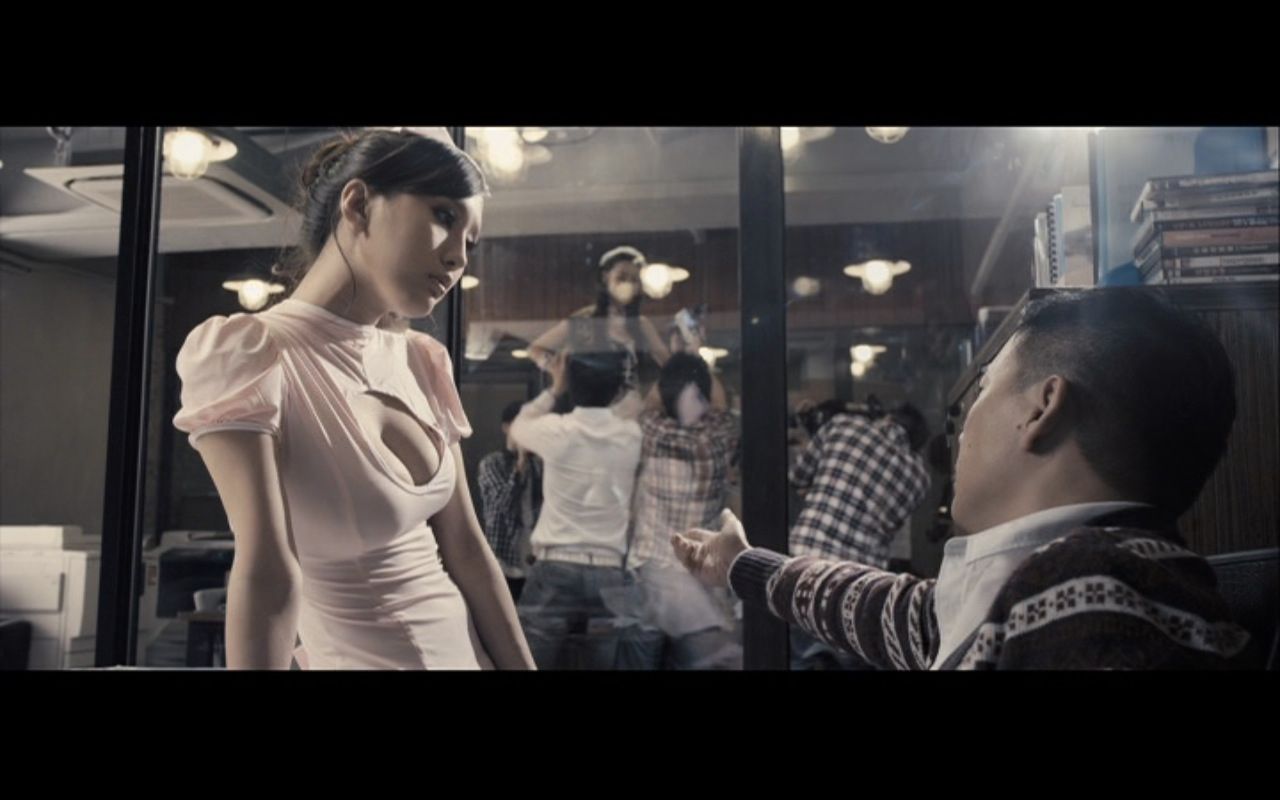 Pang’s films have also been accused of misogyny or, at best, a fairly regressive representation of women. In his first film, ‘[l]ife is only redeemed by the presence of beautiful, sexually-available women’, and in later films ‘Pang specialized in comedies of men’s idealism about women (AV [2005], Trivial Matters [2007]), and men’s absolute fear of women (Men Suddenly in Black [2003], Exodus [2007])’ (Hu, op cit.: 213). Hu asserts that Pang’s films have an element of ‘adolescent male fantasy’ about them (ibid.). The same is true of Vulgaria: women are either obstacles (To’s wife [Krystal Tin], who acts as a barrier between To and his young daughter Jacqueline), sources of frustration (To’s secretary, from the mainland, accuses him of sexual harassment when she misunderstands his assertion that her performance has been nosediving, believing that he has told her to go ‘muff-diving’) or beautiful and sexually available. The star of To’s film-within-the-film, ‘Popping Candy’ has previously been on To’s casting couch (but To does not remember her), performs a sexual trick – the source of her nickname – involving popping candy and her mouth (in To’s car, he tells Popping Candy, ‘In the industry, these are the most important words: rely on your mouth’. ‘My mouth can learn pretty fast’, she tells him before putting popping candy in her mouth and performing fellatio on him), and devises a video game in which the player, taking the role of a masseuse, uses the motion controller of a Wii console to give a client a ‘happy ending’. Pang’s films have also been accused of misogyny or, at best, a fairly regressive representation of women. In his first film, ‘[l]ife is only redeemed by the presence of beautiful, sexually-available women’, and in later films ‘Pang specialized in comedies of men’s idealism about women (AV [2005], Trivial Matters [2007]), and men’s absolute fear of women (Men Suddenly in Black [2003], Exodus [2007])’ (Hu, op cit.: 213). Hu asserts that Pang’s films have an element of ‘adolescent male fantasy’ about them (ibid.). The same is true of Vulgaria: women are either obstacles (To’s wife [Krystal Tin], who acts as a barrier between To and his young daughter Jacqueline), sources of frustration (To’s secretary, from the mainland, accuses him of sexual harassment when she misunderstands his assertion that her performance has been nosediving, believing that he has told her to go ‘muff-diving’) or beautiful and sexually available. The star of To’s film-within-the-film, ‘Popping Candy’ has previously been on To’s casting couch (but To does not remember her), performs a sexual trick – the source of her nickname – involving popping candy and her mouth (in To’s car, he tells Popping Candy, ‘In the industry, these are the most important words: rely on your mouth’. ‘My mouth can learn pretty fast’, she tells him before putting popping candy in her mouth and performing fellatio on him), and devises a video game in which the player, taking the role of a masseuse, uses the motion controller of a Wii console to give a client a ‘happy ending’.
Elsewhere, Pang lampoons the conventions of Hong Kong’s notorious Category III productions. To’s daughter Jacqueline explains her difficulties at the expensive school that To’s ex-wife, a barrister, has sent her to: whilst Jacqueline’s friends freely talk of their parents’ achievement, Jacqueline tells To that her mother ‘says your [To’s] films are all Category III’ and therefore unsuitable for children, so she cannot talk about them with her classmates whose ‘families only let them go to see stuff like Lord of the Rings and Internal Affairs’. ‘In this world, there are many kinds of movies’, To explains to her: ‘Some of them are shot expensively, and others are not so expensive. Daddy right now’s making movies that are not so expensive. It’s cheaper, so there’s less money, less promotion, fewer cinemas will show them, so less people will see them’. It is a dryly amusing scene (Jacqueline’s reference to her friends whose families only let them ‘see stuff like Lord of the Rings and Internal Affairs’ is obviously comic) but also quite touching inasmuch as To is forced to admit his ‘failure’ to his young daughter. Later, more jokes are made about the Category III culture. When To approaches Yum Yum Shaw and tells her that he is thinking of using CGI to composite her head onto Popping Candy’s body (‘With advances in technology, even Avatar could make a guy turn into a blue creature’), Yum Yum tells him she will only appear in the film if her co-star is Chow Yun-Fat but To, lying, says Chow Yun-Fat is busy for three years. He suggests another actor who is ‘like the Chow Yun-Fat of Cat III films’. (Of course, Chow Yun-Fat starred in two Cat III films: Taylor Wong’s serious crime picture Triads: The Inside Story [1989] and the wacky comedy-horror film The Seventh Curse [Ngai Choi Lam, 1986].) The actor is the real-life actor/model Hiro Hayama, who previously starred in Christopher Suen’s rebranding of the Sex and Zen franchise, 3-D Sex and Zen: Extreme Ecstasy (2011); Tyrannosaur’s insistence that To remake his favourite Cat III film from his youth, Confessions of a Concubine, parodies such nostalgic attempts to visit and revitalise Hong Kong cinema’s past. When To meets with Hayama, the actor asserts that he cannot make another Category III film because he has developed ‘exploding body parts phobia’. To persuade the actor to appear in Confessions of a Concubine, To guarantees Hayama that his ‘cock from beginning to end [of the film] won’t get cut off’ and assures him that ‘everyone [in the film] will be normal and caring’. This reflexive approach to Hong Kong cinema's past is foregrounded in the opening titles sequence, which begins with old-time music and a worn studio logo (damaged as from a worn and faded 35mm print). An offscreen voice asserts, ‘Your attention please. This film has been classified as vulgar comedy. It contains high amounts of coarse language, adult themes, political incorrectness, discrimination and sexual situations. As such, this film has been rated one level higher than Parental Guidance: Parental Censure. Any persons who are unable to accept these themes will be granted 10 seconds of screen time to leave the cinema’. An onscreen countdown timer ensues, counting down from ten. (Here, there are shades of Gaspar Noe’s notorious film Seul contre tous [1998] with its famous declaration, ‘You have 30 seconds to leave the cinema’.) ‘As a result of seeing this film’, the narrator continues, ‘if any persons develop symptoms of emotional distress, illness, unhappiness or erectile dysfunction, the film and the cinema would like to make clear that it’s not our fucking problem’. Later, To and his sworn brother Lui Wing-shing (Simon Loui Yu-yeung) meets with Tyrannosaur, who is the ‘boss’ of a triad gang from the rural Guangxi province, and Pang highlights rural stereotypes in a sequence that escalates to a moment of high self-awareness. At the meeting, To and Wing-shing struggle to eat the food presented to them by the rural folk of Guangxi (cat, turtle, bull’s eye soup, etc), thus running the risk of making their hosts lose face. To eventually asks for something ‘more normal’ to eat. The Guangxi triads offer him cow; To later discovers that he has been eating ‘cow bliss’ or ‘cow vagina’. After dinner, he is offered ‘mule pussy’. ‘What is mule pussy?’, he asks, hoping the term alludes to something innocent. ‘Mule pussy is the pussy of a mule’, is the simple answer that he receives. However, rather than eat ‘mule pussy’, their host is expecting To and Wing-shing to have intercourse with two mules, one of which it is later revealed is the partner of Tyrannosaur (Tyrannosaur forces To to give the mule a role in the film and is distraught when she dies during the production). To resists: ‘The whole night you forced me to eat this shit. You want me to eat cow’s vagina? Fine, but when I’m drunk you tell me to go fuck animals? I’ll kill anyone who tells me I should go fuck a mule’. However, the Guangxi men (who include amongst their number Lam Suet, in a small role) hold To and Wing-shing at gunpoint for making them lose face. Wing-shing tells To, ‘No matter what happens tonight, only you and I will know… and the eight of them… and the two mules’. With this, the sequence – which has been progressing in a way that is familiar to viewers of Hollywood’s recent spate of crude ‘bromance’ comedies such as The Hangover – becomes increasingly reflexive. As To and Wing-shing walk towards the mules, the film burns up in the projector. A white screen follows; To walks on and declares, ‘If you’ve ever been to those old cinemas where there was a dress circle for midnight shows, then you may have experienced the same thing. Halfway through the show, the film burns up because the projector got too hot. Part of a reel is missing. There’s no picture. When you drink too much, you may also lose some footage. You forget what happened to you, and what you’ve done. If it’s something we really want to forget, we can also force ourselves to lose some footage. What the hell happened that night? I just remember us having dinner, after that cigarette I don’t remember anything. But since then, whenever I see a four legged animal like a horse, a cow, a goat, I can’t help but start flinching. I try to make myself forget because, what happens in Vegas, stays in Vegas. What happens in Guangxi, I’d rather not think about it’. 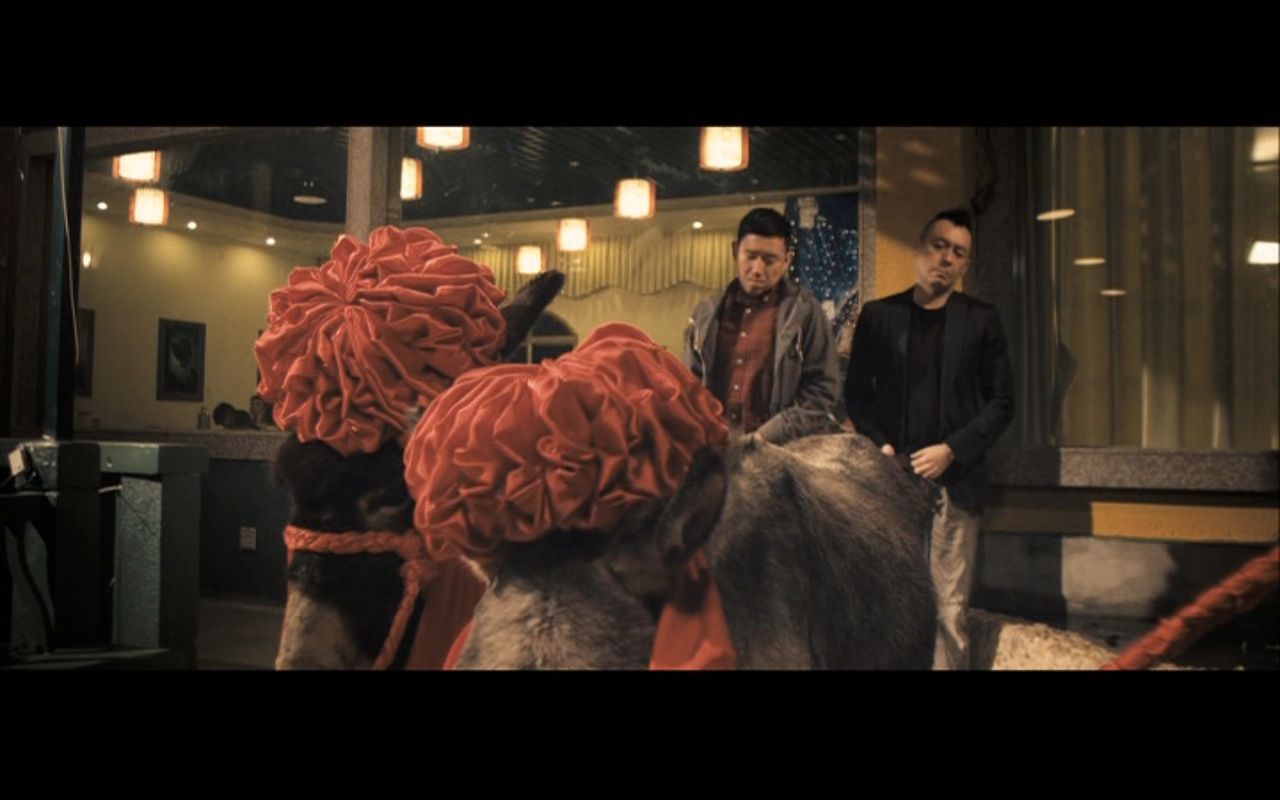  The sequence functions as a primal scene to which To repeatedly refers throughout the rest of the film and, in the diegetic present, during the lecture in the university hall. The students who are present interrupt his narrative to try to get him to ascertain whether or not To did indeed fuck the mule. In this context, the framing device is quite clever. At the end of the film, it is revealed that To has been using the lecture to tell outlandish stories, in the hopes that the students will be recording these embarrassing stories on their mobile telephones and streaming them on the Internet – as a means of promoting his film. At the end of the film, the realisation of this forces the viewer to ask, how honest has To been during the lecture, and how reliable is he as a narrator? His digressions and asides, and in particular his claims about ‘[w]hat happen[ed] in Guangxi’, may be interpreted as either narrative ‘fact’ or outlandish stories created by To for the purposes of promoting his film. This final revelation gives a different perspective on Pang’s superficially crude film: the vulgar escapades are revealed to be a very subjective representation of To’s story, cannily crafted by the narrator to appeal to the more prurient interests of his audience so as to promote his new film. Pang’s film thus shows a level of complex reflexivity, a feature of his films since You Shoot, I Shoot, that is lacking in the crude Hollywood ‘bromance’ pictures with which Vulgaria has been compared. The film runs for 92:58 mins (NTSC) and appears to be uncut.
Video
The film is presented in its original aspect ratio of 2.35:1, with anamorphic enhancement. The film looks fairly good on this DVD. There are crushed blacks in some low-light scenes and contrast levels are arguably a little weak (Third Window’s Blu-ray release is no doubt superior in this regard), but otherwise it’s a handsome presentation. 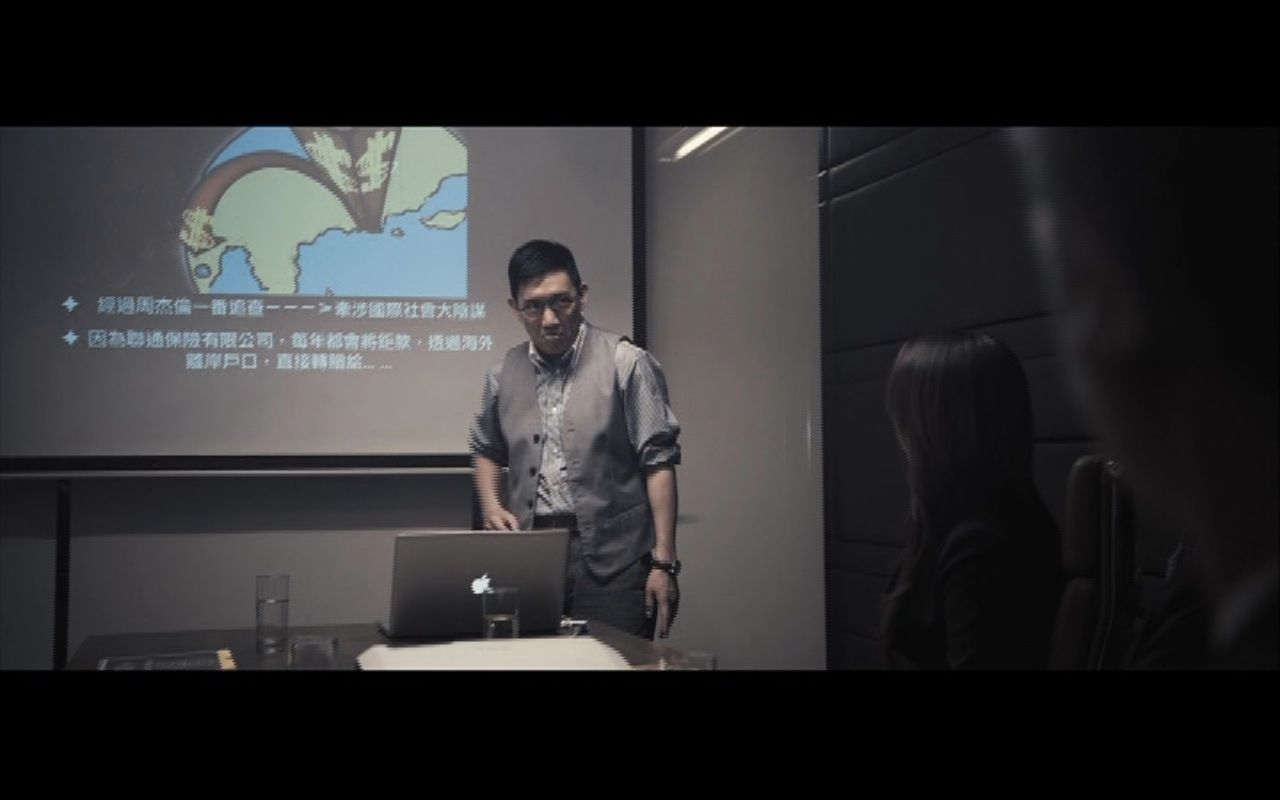 
Audio
Audio is presented via a Dolby Digital 5.1 track (in Mandarin and Cantonese). This is clear throughout. It’s not a ‘showy’ track, by any means, but some interesting and atmospheric sound separation effects are used in some sequences. English subtitles are optional.
Extras
Trailer (1:57) ‘Making Of’ featurette (10:08) Bonus trailers: The Woodsman and the Rain, For Love’s Sake, Sawako Decides, Himizu, Mitsuko Delivers, The Foreign Duck, The Native Duck and God in a Coin Locker, Kotoko, Tetsuo: The Iron Man, Love Exposure, Isn’t Anyone Alive?, Villain, Memories of Matsuko, Cold Fish, Underwater Love, Crime or Punishment, Confessions, Confessions of a Dog, Adrift in Tokyo Web links
Overall
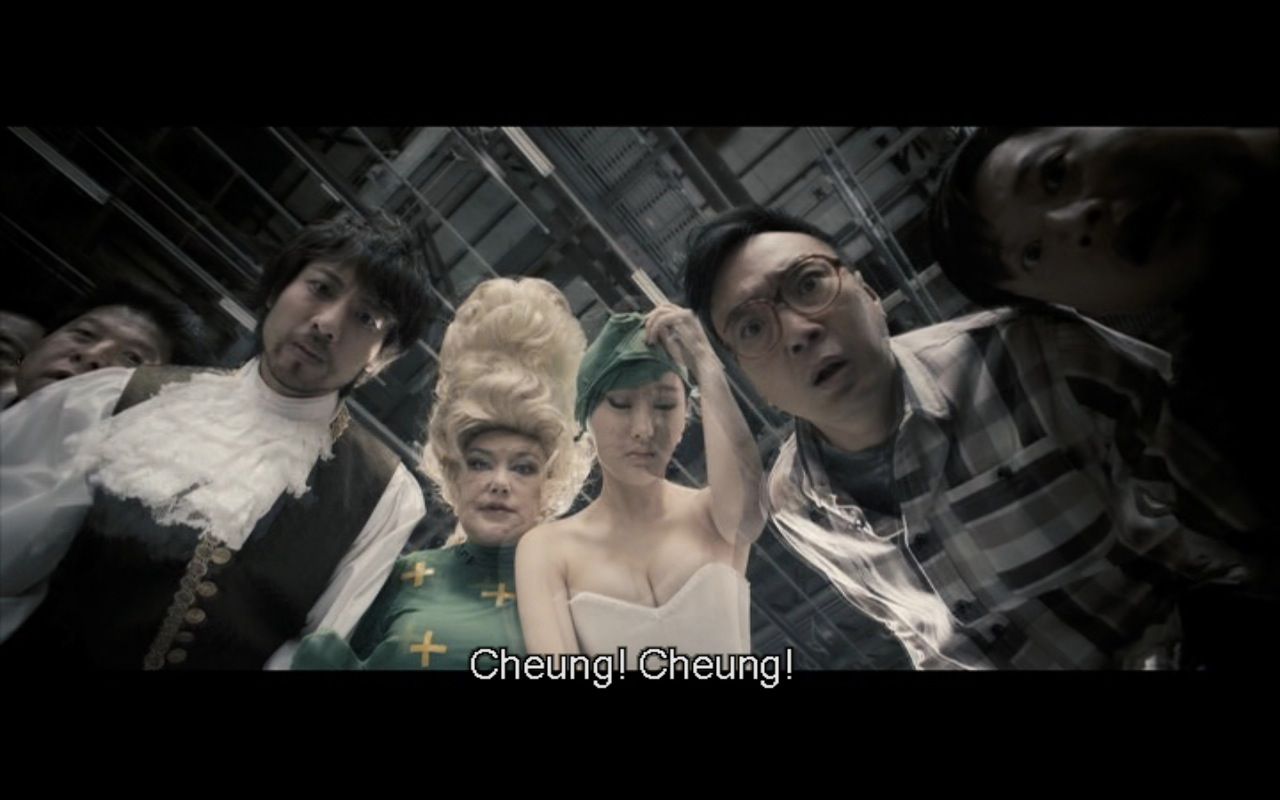 Superficially, Vulgaria is little more than a crude, vulgar comedy that has much in common with Hollywood’s current focus on adolescent humour. However, Pang’s film has a similarly complex structure and reflexive approach to Pang’s previous films; ultimately, the film both revels in and criticises cinema’s reliance on crudity. Vulgaria also shares its sense of the absurd with Pang’s earlier films: nowhere is this more evident than in the sequence in which To is visited by a government representative after his mainland Chinese assistant mistakes his reference to ‘nosediving’ as an allusion to ‘muff-diving’. The woman from the government ties To up in knots. When To says, referring to his assistant, ‘Fuck, this overseas Chinese girl is so much trouble’, the government woman insists he said, ‘Fucking this overseas Chinese girl is so much trouble’. After revealing that To told his assistant to ‘get bent’, the woman from the government tells him that, as To’s assistant practices yoga, ‘I have reason to believe you think her body is more flexible than normal’, the government woman says, so she can do that particular movement’. This sequence highlights Pang’s absurdist worldview, but it also hints at the problematic representation of women that plagues Pang’s films, discussed above. Ultimately, Vulgaria is a fascinating film which is much more complex than, on the surface, it appears to be. Its reflexive qualities should make it a ‘must watch’ for those interested in Hong Kong film production and, especially, the Cat III phenomenon. Superficially, Vulgaria is little more than a crude, vulgar comedy that has much in common with Hollywood’s current focus on adolescent humour. However, Pang’s film has a similarly complex structure and reflexive approach to Pang’s previous films; ultimately, the film both revels in and criticises cinema’s reliance on crudity. Vulgaria also shares its sense of the absurd with Pang’s earlier films: nowhere is this more evident than in the sequence in which To is visited by a government representative after his mainland Chinese assistant mistakes his reference to ‘nosediving’ as an allusion to ‘muff-diving’. The woman from the government ties To up in knots. When To says, referring to his assistant, ‘Fuck, this overseas Chinese girl is so much trouble’, the government woman insists he said, ‘Fucking this overseas Chinese girl is so much trouble’. After revealing that To told his assistant to ‘get bent’, the woman from the government tells him that, as To’s assistant practices yoga, ‘I have reason to believe you think her body is more flexible than normal’, the government woman says, so she can do that particular movement’. This sequence highlights Pang’s absurdist worldview, but it also hints at the problematic representation of women that plagues Pang’s films, discussed above. Ultimately, Vulgaria is a fascinating film which is much more complex than, on the surface, it appears to be. Its reflexive qualities should make it a ‘must watch’ for those interested in Hong Kong film production and, especially, the Cat III phenomenon.
References: Hu, Brian, 2012: ‘Taiwan and Hong Kong’. In: Bettinson, Gary (ed), 2012: Directory of World Cinema: China. London: Intellect Books: 198-213 Shannon, Jeff, 2012: ‘“Vulgaria”: a raunchy, yet good-natured comedy’. The Seattle Times. [Online.] http://seattletimes.com/html/movies/2019341648_mr05vulgaria.html?syndication=rss
|
|||||

|